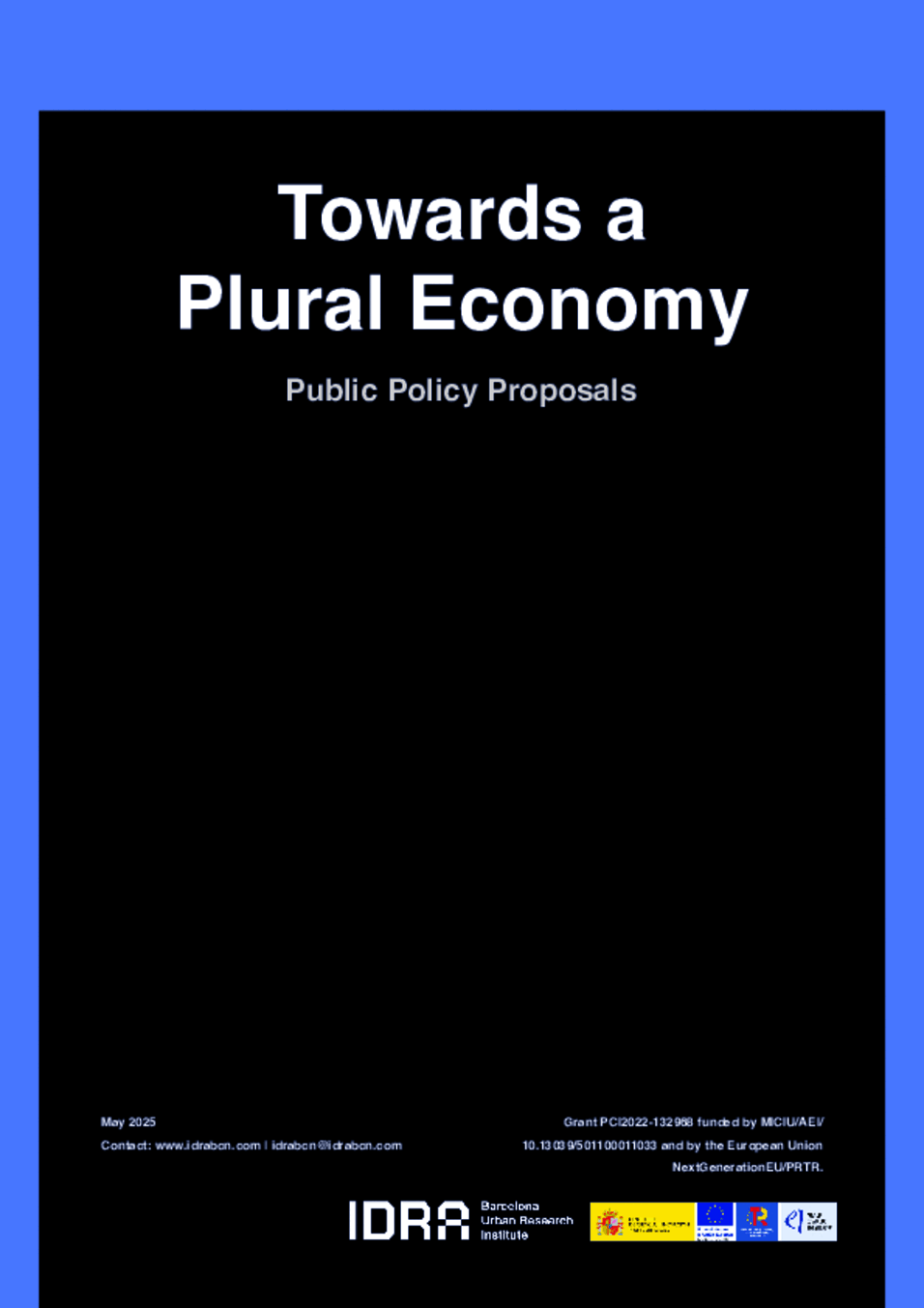Abstract
It is increasingly recognized that developing welfare economies require accounting for other forms of economic activity beyond those captured by GDP. This refers to collective and self-managed ways of meeting needs and pooling resources.
These activities can assume various shapes under the framework of the Plural Economy, often manifested as public-community collaborations. This policy brief highlights a successful initiative moving in this direction: The Urban Commonalities program (Comunalitats Urbanes, 2022–2026), a public policy of the Department of Enterprise and Labor of the Catalan Government that aims to promote a fairer organization of the economy.
Amid multiple crises and rising inequalities, this document offers proposals for public administrations, policy makers, and involved stakeholders to foster new collaborations among public, cooperative, neighborhood, and community actors, promoting an economy rooted in local territories and aligned with ecological transition goals.

